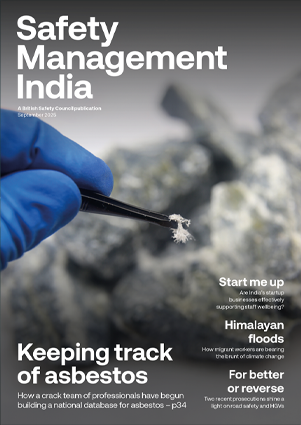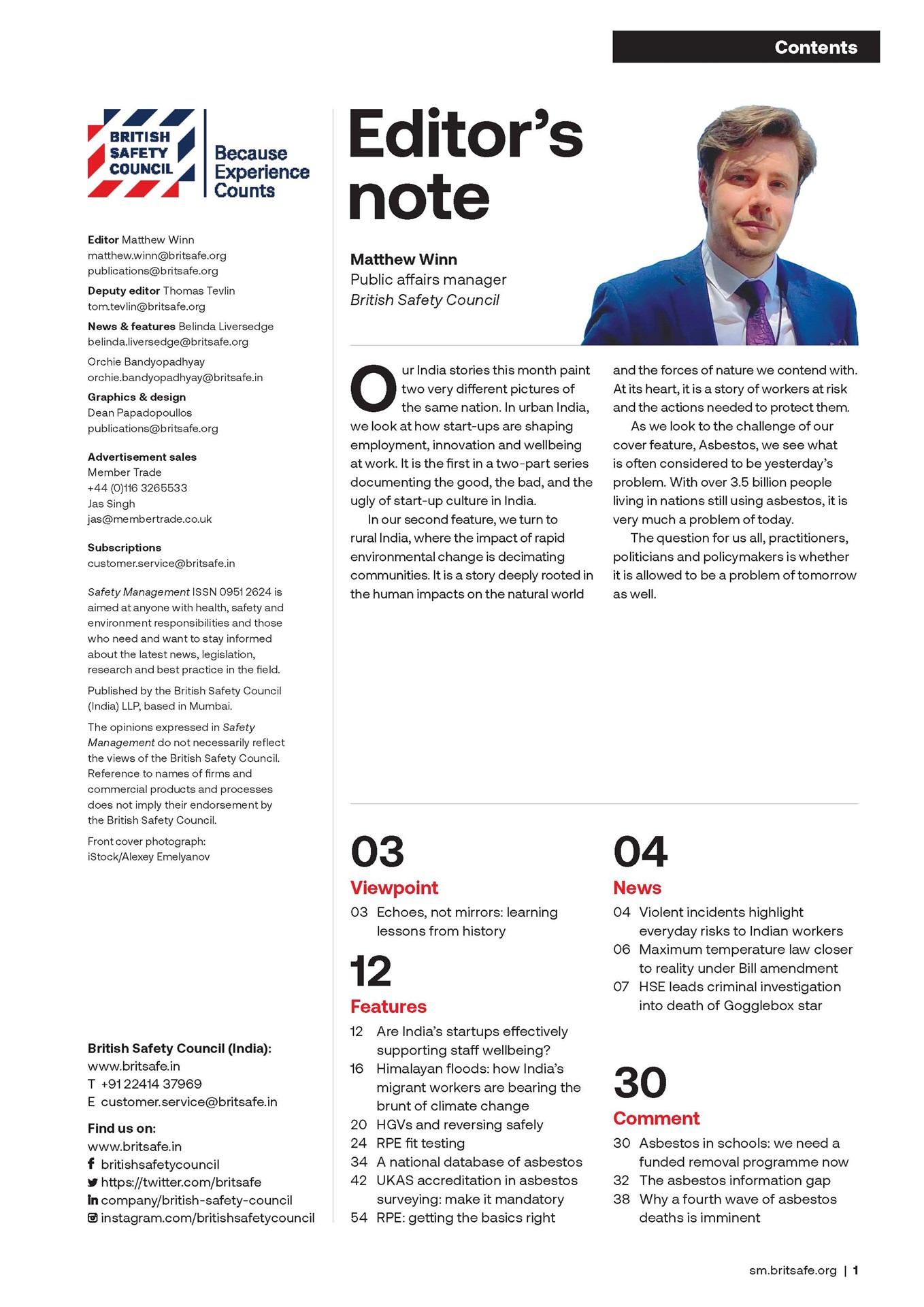Swedish fashion giant H&M and Eastman Exports Global Clothing Private Limited, one of India’s largest garment manufacturers, have jointly signed a legally-binding agreement pledging to prevent gender-based violence and harassment (GBVH) against women workers at garment factories under Eastman’s control.
News
H&M Group and Indian clothing company pledge to prevent sexual harassment in garment factories
The agreement – the first of its kind in the Asian garment industry – was co-signed by the Tamil Nadu Textile and Common Labour Union (TTCU), an independent Dalit women-led union, Asia Floor Wage Alliance (AFWA) and Global Labour Justice – International Labour Rights Forum (GLJ-ILRF).
The agreement covers the Natchi Apparels complex in Dindigul, Tamil Nadu, which is owned by Eastman Exports and manufactures clothes for H&M. The site includes four garment units, two spinning mills and a printing unit, all of which are covered by the new agreement.
 Photograph: iStock; credit: triloks
Photograph: iStock; credit: triloks
The agreement follows the ‘Justice for Jeyasre’ campaign, which was launched by a coalition of labour and women’s rights organisations after the alleged rape and murder of Jeyasre Kathirvel, a 20-year-old Dalit garment worker at the Natchi Apparels complex. Jeyasre was last seen by her family on 1 January 2021, when she was asked by her supervisor to report to the factory. Four days later, on 5 January, her body was found by farmers on nearby wasteland.
A report about the case from the Asia Wage Floor Alliance – an alliance of trade unions and labour rights activists, both in Asian garment-producing countries and in Europe and North America – alleges that Jeyasre was killed by her supervisor. The Alliance also reported that the supervisor has confessed to the murder and rape of Jeyasre and is currently in custody, awaiting charges.
Although the circumstances of Jeyasre’s death remain unclear, her family alleges she was raped at her supervisor’s house and then poisoned and strangled. It is also alleged that the supervisor had an accomplice.
According to media reports, Jeyasre’s family allege she faced months of sexual harassment and intimidation from her supervisor on the factory floor at Natchi Apparels.
Co-workers of Jeyasre also alleged there was a history of sexual harassment at the Natchi factory and that Jeyasre was a repeated victim of harassment by her supervisor.
In a statement the Asia Floor Wage Alliance said: “Seven women workers at Natchi Apparels have testified that Jeyasre was sexually harassed multiple times by the supervisor. They have stated that the supervisor had a history of sexually harassing women and that he is not the only supervisor or manager who has indulged in these actions.
“Women workers have pointed out that there are many instances of sexual harassment and violence in the factory – including name-calling, slut-shaming, bullying, beating, and assault.”
According to The News Minute website, the agreement will see the establishment of shopfloor monitors, elected and trained by TTCU, to whom anonymous complaints of harassment can be made. If the shopfloor monitors conclude that no proper measures are being taken to redress the complaint, TTCU will have the power to step in and take the issue forward.
All workers, supervisors and managers must also undergo gender-based violence training, and anyone found to have inflicted GBVH on a female employee will be at risk of dismissal or suspension from employment, according to The News Minute report.
The News Minute also reported that if Eastman Exports is found to be in violation of the agreement, it will be in danger of losing orders from H&M.
As part of the agreement, Eastman Exports will also amend its internal policies and procedures, including strengthening the Internal Complaints Committee (ICC) and establishing an independent grievance mechanism overseen by third-party experts.
According to a statement issued by the organisations that signed the agreement, in the first year the agreement will cover 5,000 mostly female workers in spinning mills and garment cut and sew facilities run by Eastman Exports.
Jeeva M, general secretary of TTCU, said: “This agreement delivers power and support to women workers to monitor, prevent and remediate GBVH collectively and with management. We will use this as a model to organize against GBVH and caste-based discrimination industry wide.”
Jennifer Rosenbaum, executive director of GLJ-ILRF, added: “This agreement is a model for the role brands, suppliers, and labour partners have in eliminating gender-based violence from supply chains and promoting freedom of association.
“Brands play a critical role by using commercial relationships and business leverage to reduce the existing risk of GBVH, incentivising suppliers to comply with remediation. We urge all brands to sign similar agreements, join this model and replicate it across the industry.”
Subhash Tiwari, CEO of Eastman Exports, said: “All our employees deserve safety and respect at work. It is our hope that this unique agreement and partnership will not only positively impact Natchi’s valued workforce but will also serve as a model for other garment factories.”
Christian Nunes, president of the National Organisation of Women in the United States, said: “We must reinvent workplace cultures that treat women as subservient and powerless… Jeyasre Kathiravel was part of this struggle to end gender-based violence and harassment in her workplace… we must continue to say her name.”
Beena Pallical, of the National Campaign on Dalit Human Rights in India, said: “We have lost Jeyasre — we can’t get Jeyasre back… at the end of the day we’ve lost a precious life.
“But we are with you, and we stand with you very strongly and we hope that all our demands are fulfilled, not just for Jeyasre’s case but other cases in these industries… international brands, when they come here, they do not look at the local context… many jobs [in these industries] are offered to Dalits, especially Dalit women. Dalit women’s bodies are used [in these industries] as if they have no rights.”
For more information see:
Asia Floor Wage Alliance


NEWS

High temperatures may be increasing the risk of kidney disease among Tamil Nadu’s farm workers, concludes study
By Orchie Bandyopadhyay on 10 November 2025
Tamil Nadu’s agricultural workers may be facing a growing risk of chronic kidney disease linked to heat exposure, dehydration and long outdoor workers hours, according to a new study.
Mayfield proposes ‘new deal’ for workplace health in final report to government
By on 01 January 0001

